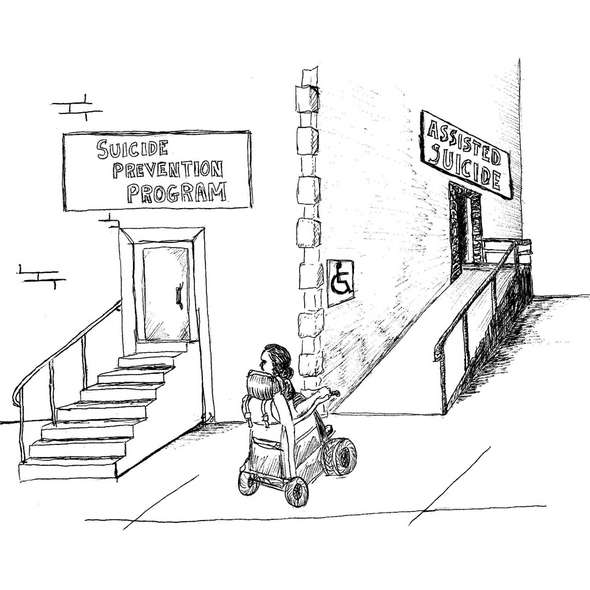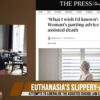
 Media Release 2 Aug 2017
Media Release 2 Aug 2017
A parliamentary inquiry into euthanasia has sounded a clear warning that changing the law on assisted suicide could be seen as normalising suicide, and an overwhelming 80% of submitters have rejected calls for euthanasia in this extensive and lengthy inquiry.
“At a time when the country is trying to reduce our horrendous suicide rates, this 49-page report sends a loud and clear message that assisted suicide fails the public safety test and will do more harm than good. Suicide is already a public health crisis. You don’t discourage suicide by assisting suicide,” says Bob McCoskrie, National Director of Family First NZ.
Advocates of assisted suicide tried to suggest that suicide can be categorised as either “rational” or “irrational”. But the government report says:
“This distinction was not supported by any submitters working in the field of suicide prevention or grief counselling. On the contrary, we heard from youth counsellors and youth suicide prevention organisations that suicide is always undertaken in response to some form of suffering, whether that is physical, emotional, or mental.”
It was also pointed out by submitters that when the media cover assisted dying stories, they always accompany the story with suicide prevention contact details. Family First has previously warned that guidelines around the media reporting of suicides are being widely ignored in the reporting of recent instances of assisted suicide, with the subject’s decision to end his or her life frequently presented in the media as inspiring and even heroic, and the means of committing suicide being clearly spelt out.
“Promotion of assisted suicide is a message that will be heard not just by those with a terminal illness but also by anyone tempted to think he or she can no longer cope with their suffering – whatever the nature of that suffering. This is the real risk to young and to vulnerable people, the disabled and elderly people if NZ follows the path of promoting – and allowing – assisted suicide,” says Mr McCoskrie.
The government report shares this concern, saying:
“Many submitters were concerned that if assisted dying was legalized, people would see death as an acceptable response to suffering. It would be difficult to say that some situations warranted ending one’s life while others do not. These submitters were concerned that while terminal illnesses would initially be the only scenario in which ending one’s life would be considered acceptable, this would quickly widen to include any degree of physical pain, then to include mental pain, and then in response to many other situations that arise throughout life…”
“Several submitters suggested that, during their worst periods of depression, they would have opted for euthanasia had it been available in New Zealand.”
“Promotion of assisted suicide is a message that will be heard not just by those with a terminal illness but also by anyone tempted to think he or she can no longer cope with their suffering – whatever the nature of that suffering. This is the real risk to young and to vulnerable people and elderly people if NZ follows the path of promoting – and allowing – assisted suicide,” says Mr McCoskrie.
“This government report clearly highlights the need to move on from the current political push for euthanasia, and to focus on what New Zealanders really need and want – a focus on providing the very best palliative care and support for vulnerable people, whether they are at the end of their life, or momentarily wishing they were at the end of their life.”
ENDS
READ Family First’s Submission to the Inquiry
READ Family First’s Oral Submission – “You don’t discourage suicide by assisting suicide”


